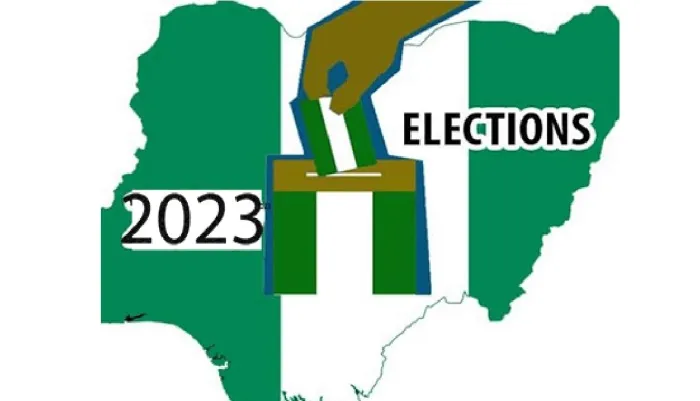Nigerians can ask questions. We are probably the best in the world in the art of asking questions to the extent that the first thing one is confronted with in the morning is a question. Our greetings in various languages are often “Have you woken?” or a more dubious translation of the Hausa one: “Where did you sleep?”
Asking questions is a national culture, across the divergent array of tribes, religions and ethnicities that we have developed an incredible aptitude for answering questions with, you guessed it, questions.
Senators okay Orosanye report, say over 400 MDAs risk scrapping
NIGERIA DAILY: Real Reason INEC Delisted Over 1 million New Registrants
The trouble, however, is that good as we are at the art of asking questions, the quality of those questions though is rather questionable. We have also mastered the art of asking the wrong questions that inherently leave us with the wrong answers.
For example, every election season, Nigerians queue up to ask their politicians’ serious questions that define the success or failure of the candidates’ entire campaign and the four or eight years they will be in office. Considering the frequency with which this question is asked, it may just be a fundamental existential question. That question is: where is your certificate?
I suppose this is why Nigerians, who still have all their certificates intact, certificates that have not been burned or lost in the ethnic, communal, political, terrorist and bandits violence that has been ravaging the country, may soon be lining up at banks to put the vaunted documents in a safety deposit box. At least when confronted with that question, they will have something to show.
In itself, the question is crucial. In some contexts, it is plainly redundant and a waste of time and distraction. When you retire as a general in the army—Head of State or Chief of Air Staff for instance—anyone, it doesn’t matter and decide to run for public office, someone is going to ask you where your certificate is.
In the brouhaha that would follow, no one would ask how you executed your time in office, how you managed our commonwealth and how did you do the good things you did in office if you did any, and how would your experience from that office apply to the betterment of your people.
When Buhari ran in 2015, the drama over his WAEC certificate created such a storm that he and his campaign team were put under immense pressure to present those papers. Nigerians became armature sleuths and investigative journalists—Dele Giwa and Sherlock Holmes rolled into one—writing to institutions to validate claims about the candidates’ academic claims, analysing the authenticity of the certificate and proffering expert opinions. I wish we bring this diligence to scrutinising their performance records in any public offices they have held. Nigerians did not pressure Buhari to defend his record as Head of State or explain his policies, or inquire if he had any as they pressured him to present his WAEC certificate.
This season, we have seen that question crop up several times. The most recent centres around the immediate past Chief of Air Staff, Sadique Abubakar, who is running for governor of Bauchi State.
They looked past the man’s master’s degree from the University of Ibadan, past his degree in political science, and past his career in the military, which wouldn’t have been possible without these qualifications and asked, “Oga sir, where is your primary school certificate?”
A petition has been written to this effect and a lot of energy is being expended in this pursuit. Is this relevant discourse? Apparently, for those who felt moved to submit this petition. Should that be the pertinent questions they should be asking? How about a question on his management of the Airforce and his performance in office? How did his successes or failures as the Chief of Air Staff impact the war on terror and how will that affect his performance in office as governor, should he be so elected?
While it is crucial to follow due diligence, we as a people have funny ways of going about it.
The obsession with certificates over competence has birthed an unhealthy tradition where people have found themselves forging documents to get their legs through the door of public service. One of the most famous cases of course is that of Ndi Okereke-Onyiuke. The former Stock Exchange Commission boss claimed she had a PhD from the City University of New York. When contacted, the university denied the claim.
What is tragic about this is that by her experience working in public service and elsewhere, Mrs Onyiuke had enough experience to share and teach and on that ground would have been a great resource as a lecturer at a university. Of course, the UNN awarding her the title of a professor created some wrinkle in the crinkle and a small storm.
Salisu Buhari, the young and much-liked speaker of the House of Representatives in 1999, allowed himself to fall into this trap with claims that he had a master’s degree from the University of Toronto. The irony was that he only needed his secondary school certificate to be eligible for that office and could have sold himself as a candidate based on what he had done. Of course, he also falsified his age, which was the main reason he was removed from office and eventually convicted of forgery. Trust Nigeria, he was immediately pardoned by the government and told to go and sin no more.
In the political realm, apart from the usual distractions, public officers like Kemi Adeosun, the erstwhile Minister of Finance, were forced to resign from office after it was revealed that she had forged her NYSC certificate. In terms of her academic credentials, that certificate adds nothing. As a point of law though she is required to have one to be eligible for the office she occupied. Here it was not about competence.
Having a sound education is great. Having the certificate to back it up is even more so. But here, we put the cart before the horse and often pursue the certificate without a sound education. And so we are confronted with hordes of people with excellent certificates without the competence to fit into any office or to create wealth for themselves or ideas for our collective growth.
But as having a certificate is often the easiest means of accessing jobs, we find cases of forgery prevalent. In a private Abuja school, 18 out of its 25 staff were discovered to have one or more fake certificates. In Bauchi, Daniel Ishola Owaodemi was discovered to have been teaching at the Abubakar Tafawa Balewa University for 12 years with fake certificates. He was jailed for 30 years or given the option of an N60, 000 fine. No price for guessing which of the options he took.
This again makes it ridiculous how much emphasis we place on certificates and how flighty our laws are towards them. Just like Salisu Buhari, who was convicted and offered the option of N2, 000 fine. Or even Kemi Adeosun, who was allowed to pack her fake NYSC certificate and return to London without even the pretence of prosecuting her for forgery.
In the long run, do these things affect political candidates? Maybe not. Buhari is President. Tinubu despite the storm over his University of Chicago claims lingering over him, is still the forerunner for president in 2023.
These are people whose experience alone, be it in the military or as a former governor, would have been sufficient qualification or disqualification based on performance in their previous office, for the office they are aspiring to. Yet, each time, we find ourselves creating a storm of the wrong questions, asking about certificates when we should be asking about the money, used or misused in these people’s care, about policy and plans.
But, understandably, having a candidate disqualified is usually the easiest way for the rival party, but that is what it serves—the interest of the rival party, whose role should be far more comprehensive and incisive than that. Does it serve the interest of the electorate who will benefit more from candidates being asked crucial questions that affect policy and competence? No, it doesn’t. But then again who cares about the electorate and what is right for them, right? Nigeria sure has a roundabout way of going about things and measuring competence and performance.

 Join Daily Trust WhatsApp Community For Quick Access To News and Happenings Around You.
Join Daily Trust WhatsApp Community For Quick Access To News and Happenings Around You.


